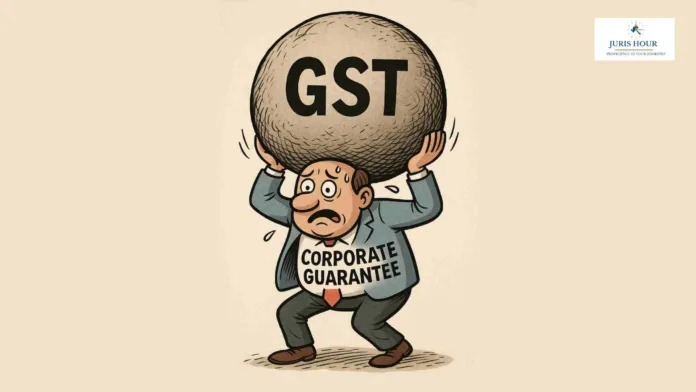The imposition of Goods and Services Tax (GST) on corporate guarantees issued between related parties has sparked widespread legal challenges from several corporate entities across the country.
Among them is Jindal Stainless, which in October 2024 moved the Delhi High Court against a GST notice pertaining to guarantees issued by its former group company, Jindal Stainless (Hisar), prior to their merger in March 2023.
GST on Corporate Guarantees
Under GST law, particularly after the issuance of Circular No. 204/16/2023-GST dated October 27, 2023, and the amendment via Notification No. 52/2023-Central Tax, corporate guarantees issued to related parties without consideration are treated as a taxable “supply” of service.
This is based on Section 7 of the CGST Act read with Schedule I, which covers supplies made between related parties without consideration. Rule 28(2) of the CGST Rules was inserted to determine the valuation of such corporate guarantees, stating that the value of such service shall be at least 1% of the guarantee amount or the actual consideration, whichever is higher. The GST rate applicable is 18%.
Legal Challenge by Jindal Stainless
Jindal Stainless challenged the retrospective applicability of GST on corporate guarantees issued by Jindal Stainless (Hisar) to its related parties. The company contended that the guarantees were issued well before the merger and that taxing them under the amended valuation rule is arbitrary and ultra vires the statute.
The Delhi High Court admitted the writ petition (W.P. (C) 14622/2024) filed by Jindal Stainless and issued notice to the GST authorities. The court also stayed any coercive recovery proceedings until the matter was fully heard. The petition has been tagged with similar cases involving other corporates such as Sterlite Power.
Broader Legal Landscape
Several other companies have moved High Courts across India challenging the validity of Rule 28(2) and its application to corporate guarantees. Key arguments include:
- Guarantees are contingent in nature and should not be treated as taxable services unless invoked.
- The 1% deemed valuation is arbitrary and lacks statutory backing under Section 15 of the CGST Act.
- Imposing tax without consideration contradicts the nature of guarantees issued as intra-group financial support mechanisms.
The Bombay High Court, Punjab & Haryana High Court, Telangana High Court, and Delhi High Court have all granted interim relief by staying the recovery of GST based on corporate guarantees.
Key Case References
Jindal Stainless Ltd. vs. Union of India (W.P. (C) 14622/2024) – Delhi HC stayed recovery proceedings on guarantees issued by a merged entity.
Sterlite Power Transmission Ltd. – Delhi HC held the supply is contingent and granted interim relief.
Acme Cleantech Solutions – Punjab & Haryana HC has temporarily stayed a circular that made corporate guarantees subject to Goods and Services Tax (GST). This is good news for businesses because the circular was causing problems.
Vedanta Ltd. – Bombay HC raised constitutional concerns over valuation rules and stayed GST demands.
Implications for Businesses
The ongoing litigation has created uncertainty for businesses regarding their liability on corporate guarantees. While the 1% valuation rule is being challenged, companies are advised to evaluate their exposure, maintain proper documentation, and ensure appropriate invoicing where required.
For companies eligible for full Input Tax Credit (ITC), the declared invoice value may be accepted instead of the deemed 1% value. However, the scope of “full ITC” remains a matter of interpretation and may vary based on the facts of each case.
Outlook
The matter is expected to eventually reach the Supreme Court or be considered by the GST Council for policy clarification. Until then, taxpayers and tax administrators remain in a state of flux regarding the enforceability of GST on corporate guarantees issued between group entities.
The outcome of these petitions, especially the Jindal Stainless case, is likely to have far-reaching consequences for group financing structures, related-party arrangements, and overall GST compliance frameworks.
Read More: Industry Voices Alarm Over Misuse of GST Audit Notices at Ahmedabad Conclave

